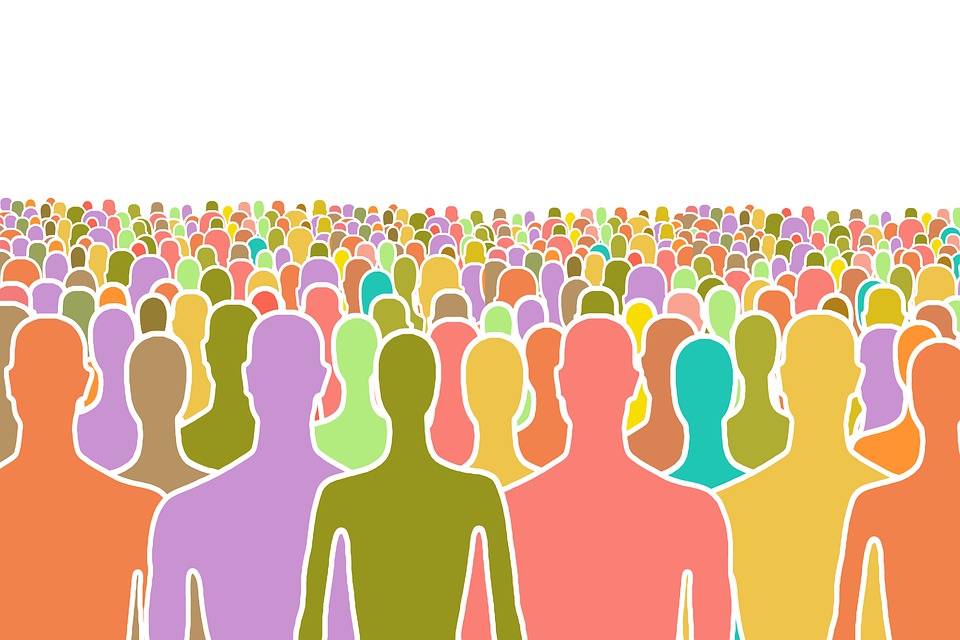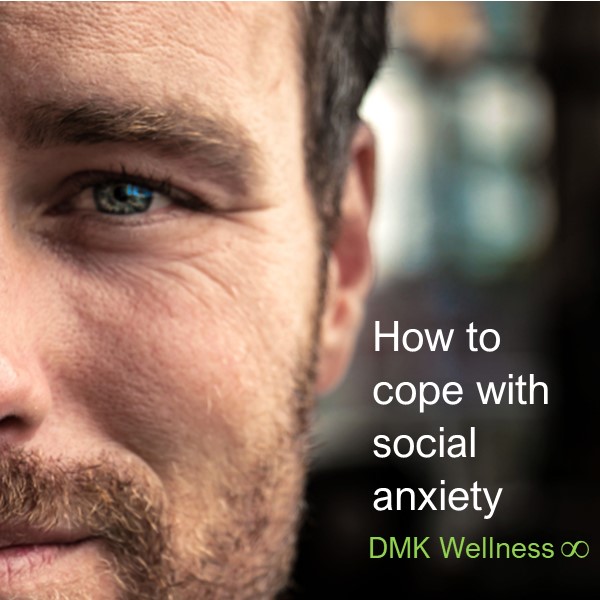Your co-worker approaches and says she will not be able to give a presentation this afternoon due to a family emergency. She asks you to present your team’s proposal instead. You reluctantly accept the task. With a quick roll of the eyes she drops the proposal on your desk and charges off.
Despite being the senior executive on the team and perhaps the most qualified, you never give the presentations. Perhaps this is the reason why you have yet to be offered a management position. You've been with the same company with little advancement over the past several years.
You go over the proposal, but the more you think about it, the more you envision making a mistake. The worst scenarios come-up in your head which make you feel like you are unprepared. Feeling unprepared makes you think through the proposal again and again and forever and again. You can see how ridiculous it is, but can't help but feel unprepared.
Your day starts to tailspin out of control in this vicious cycle. You know she had good reason, but still, you start to feel resentful towards your co-worker for dropping this on you. Your heart is racing, your face is flush and the presentation is hours away.
Sound familiar?
You’re not alone. You may have Social Anxiety Disorder, also known as SAD. It's the second most common anxiety disorder in the United States, second only to phobia related disorders. It includes many of the symptoms noted above, as well as, increased perspiration, nausea, inability to speak clearly, trembling and fidgeting. People who suffer from this disorder are consumed with fear. Some common fears include being considered uninteresting, awkward or foolish.
More than 15 million American Adults are diagnosed with this, yet, less than 5% with this disorder seek treatment within the first year following the initial onset. Moreover, most don’t seek a diagnosis for more than 10 years after the symptoms begin. Most symptoms begin in the late teen years, but can also develop later in life.
Often the stigma of being diagnosed with a mental disorder prevents people from sharing their symptoms with their doctors. But, mental disorders such as anxiety and depression are fairly common. According to NIMH, National Institute of Mental Health, as of 2017, over 46 million Americans have some form of mental illness.
Another reason for delayed diagnosis may be that friends, co-workers and family members misunderstand the severity of the disorder. Many may expect social anxiety sufferers to “ just get over it”. Which may not possible without some form of professional intervention.
Unfortunately, some individuals get much worse before they get better and try to self medicate. Consequently, this disorder increases the risk for addiction, alcohol abuse and/ or major depressive disorder.
 |
Social anxiety disorder ranks third among the most common psychiatric conditions with the most common being major depression and alcohol dependence, according to data collected in a National Comorbidity Survey.Reference: NCBI (National Center of BioTechnology Information) |
How to cope
The most effective means of coping with this disorder is to first seek a diagnosis and treatment plan. While the treatment plan for the disorder may include a counselor or psychologist, the medical diagnosis and any necessary prescriptions must come from a Medical Doctor, Doctor of Osteopathy, Physician's Assistant, Nurse Practitioner or Naturopathic Physician. This may include a psychiatrist (MD only), family physician or other specialist. Upon visiting your doctor, prepare a written list of questions, concerns and symptoms.
Suffering from an anxiety disorder makes it difficult to focus when confronted by a health care professional. It’s good to have something you can refer to during the appointment.
Prescriptions
Prescriptions vary and have side effects. They may interact poorly with other drugs or conditions. Be sure to discuss the benefits and drawbacks of adding a prescription to your treatment plan. A medication may be extremely beneficial, but it should not be considered the only option to treat your anxiety disorder.
A counselor, therapist or psychologist is very helpful in treating this disorder. However, it’s important to locate a professional who has experience with Social Anxiety Disorder and situations like yours. Be patient with the therapy, especially if you have had the undiagnosed problem for many years. It will take some time to develop the ability to feel comfortable in social situations.
References: 12/02/2018 - Anxiety and Depression Association of America, Social Anxiety Disorder, 12/03/2018 - Mayo Clinic
Disclaimer
The information provided by respective owner's ("we", "us" or "our) on Divorce Me Knot (referenced also as "DivorceMeKnot.com", "dmk", "DMK", "OurDMK.com", "OurDMK", "application" or "site") is for general informational purposes only and is subject to change with or without notice. All information on our site and application is provided in good faith, however we make no representation, guarantee or warranty of any kind, express or implied, regarding the accuracy, validity, adequacy, reliability, availability or completeness of any information on the site or application.
The information in articles and all content on this site should not be considered psychological or behavioral health therapy, counseling or legal, financial, real estate, mortgage, insurance or professional advice. It should not be used in place of professional advice from a licensed professional or credentialed expert. Providers of content on this site, herein known as "Contributors" (inclusive of, but not limited to writers, bloggers, editors, employees, developers, graphic designers, advertisers, partners, affiliates, references, experts, professionals and site owners) are not legally liable for any misinformation, errors or omissions. Names, details and images may have been changed in the content of this site.
Under no circumstances should DMK and/or it's Contributors have any liability to users of the site for any loss or damage incurred to users as a result of the use of this site or application or reliance of any information provided on the site or application. Use of the site or application and reliance on any information from the site or application is solely at the user's own risk.
For complete site disclaimers review "Disclaimers" on this site or click the link below.
Read Complete Site Disclaimers Here





 How to resolve AdBlock issue?
How to resolve AdBlock issue?